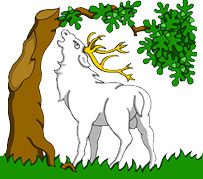Contact
Charges
- Charge - £30.00 per hour
- Online (e.g. Zoom) - £30.00 per hour
Biography
Mike has had a lifelong interest in history, especially military and local history. Following a history degree at the University of Reading, he worked as a librarian, with both the University and Reading Library. In addition to working on librarianship, he has had three books on the history of Reading published – A Hamlet Called Harmour, We Cannot Park on Both Sides and Early Closing Day. Mike works for Reading Borough Council and lives in Tilehurst with his wife and Moggy the Cat.
These talks are aimed at an audience of curious non-specialists. Each lasts about an hour, although all can be customised to suit the audience, and all include full illustrations using PowerPoint. A laptop and projector can be supplied, and all are suitable for delivery by Zoom or equivalents.
Talks
Imagine Woolly Mammoth feeding along the Tilehurst Road, and a Bronze-Age village by the M4! This talk looks at the evidence for human settlement in and around Reading from the first hunter-gatherers to Roman Britain.
Reading is first mentioned in the Anglo-Saxon Chronicle for the year 871AD. This talk gives an introduction to the world of the Anglo Saxons, and the evidence for life in Reading before the Norman Conquest.
An introduction to the life and times of one of the best known Anglo Saxon kings. Born in Berkshire, fought a battle at Reading and some would say saved England from the Vikings.
Three men…one kingdom…two great battles and an amazing embroidery. Was Harold the rightful King of England? What changed?
Worked around two symbolic buildings, this introduction to mediaeval Reading looks at the growth of the town, and its relationship to the crown and the church from Domesday Book to Henry VIII
For ten days in April 1643, a Royalist garrison was besieged in Reading by a large army sent by Parliament. This talk examines the events leading to the siege, looking at Reading in the 1640s and the political background in the country as a whole.
Although modern concepts of “welfare” might have been alien, from the Abbey to the creation of Battle Hospital Reading did provide for housing, “relief” and health care for its people. This is a survey of what was done, including the work of the Abbey, almshouses and the Corporation.
History of Tilehurst
History of Southcote
History of Coley and Coley Park (usually in association with Katie Amos)
History of Armour Road, Tilehurst
Tilehurst in WW2
All these look at the history of one of Reading’s suburbs, examining the area’s origins and development to the present day.
What links the Oxford Road to Niagara Falls and the Forbury gardens to Afghanistan? This is an introduction to the history of Reading and The Berkshire regiment, through two well known local landmarks and their links to two battles of the Nineteenth Century
The Maiwand Lion in Forbury Gardens commemorates a battle fought in Afghanistan in 1880. The Lion is posed snarling defiance to the north – towards Russia. This talk looks at the Battle of Maiwand against the background of Anglo-Russian rivalry in Asia – The Great Game – and the history of the Lion itself
Following the men of the Berkshire Regiment though one of the most controversial wars fought by the Victorian Army, to a narrowly averted disaster at Tofrek in the Sudan, this talk looks at the Regiment, the men and the political background to the First Opium War and campaigns in the Sudan
Part of a pair of talks suitable for anyone researching, ancestors or the local history of the Great War, this talk introduces themes of changes in structure, recruiting and technology showing how the affected the “Army experience” of World War One. Works just as well “stand alone”
Aimed at those researching ancestors or local figures involved in the First World War, this is an introduction to understanding and using the main sources of information readily available.
The Great War is best remembered for the trenches of the Western Front, but soldiers from Britain and the British Empire also fought in places are far apart as China and Bulgaria. This is an introduction to the land campaigns fought in Africa, the Middle East and Macedonia, and the roles of soldiers from outside Britain.
The idea of “food” in WW1 usually conjures up ideas of “bully beef” and biscuits, with plum and apple jam. However, food turned into a vital factor in determining how the War was fought and how it was lost. This talk looks at the soldier’s rations, food at home in Britain, and the role of food in economic warfare.
Peace? Defeat? Surrender? The ending of the Great War in 1918 – with formal peace only in 1919 – is as controversial as its beginning. This talk looks at how the War was won and lost and its immediate consequences.
Remembered by a memorial in the town, a surprising number of men and women from Reading volunteered to serve on the side of the Spanish Republican Government during that countries bloody Civil War. Three men were killed, and this is an account of those who served in Spain, and the fund raising and relief efforts at home in Reading.
41 people were killed by just four bombs during Reading’s only fatal air raid on 10th February 1943. However, before that the town had been bombed around ten times, and this is an account of how Reading prepared for air attack, and what can be told of the air raids themselves.
60,000 British people died as a result of German air attacks in WW2. This talk looks at how ill-prepared the Luftwaffe was for any large-scale attack on the UK, and at the methods used, concentrating on the period after the “Blitz” of 1940-41.
What was the threat from bombing in WW2 and how did the British prepare to meet it? This talk looks at the role of “Civil Defence” and how it was organised using examples from Reading.
In 1939 the regular British army was about 230,000 strong. By 1945 it was just under 3million strong. The Second World War brought huge challenges and great changes.
The first ever reference to Reading comes with a reference to an invading Viking army in 871AD. This talk looks at how Reading has been prepared for defence from this point up to the bunkers and Civil Defence measures of the Cold War.
Based on the speaker’s own experiences in writing and presenting on local history topics, this is a light hearted introduction to how to go about researching and writing a piece of history or giving your own talk on a local history topic


